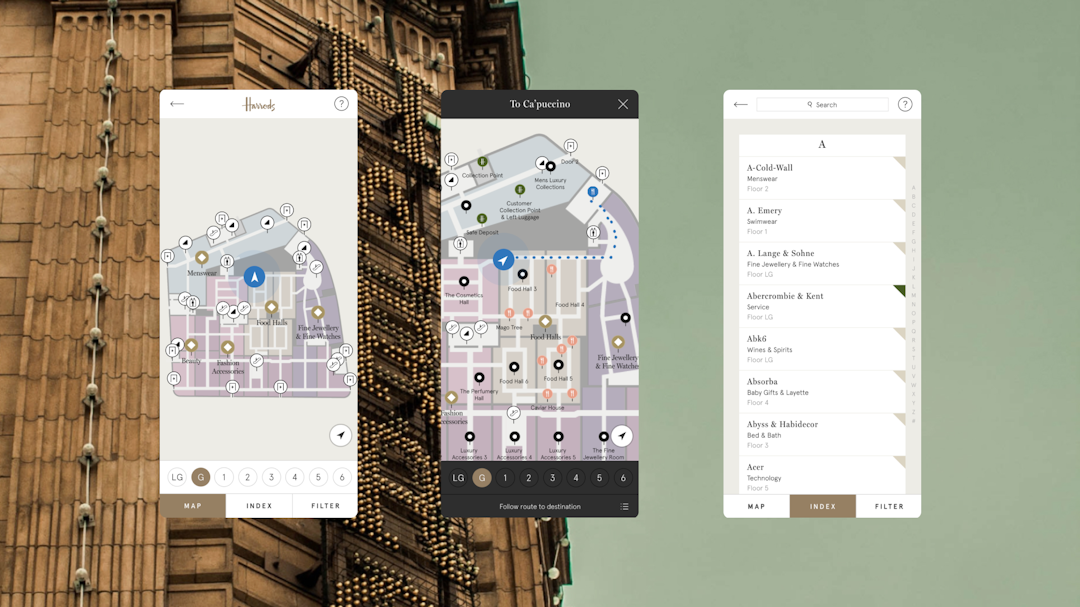AndAgain
Local time → 11:47:45 AM
Thinking
3 min read
Innovative digital tools being used in the luxury sector

The luxury sector has been adopting various innovative digital tools to enhance customer experiences and streamline operations.
Here are a few examples:
- Virtual Try-On and Augmented Reality (AR): Luxury brands are leveraging virtual try-on and AR technologies to enable customers to visualize and try on products virtually. Users can use their smartphones or dedicated AR apps to see how accessories, jewellery, or even clothing items would look on them in real-time. This technology enhances the online shopping experience, reduces the need for physical try-ons, and allows customers to make more informed purchasing decisions.
- Personalization and AI: Artificial intelligence (AI) and machine learning algorithms are being used to analyze customer data and provide personalized recommendations. Luxury brands can leverage these technologies to create customized product suggestions, tailored marketing campaigns, and personalized shopping experiences. By understanding customer preferences and behaviours, brands can offer more relevant and engaging interactions.
- Digital Concierge and Chatbots: Luxury brands are implementing digital concierge services and chatbots to provide personalized assistance and support to customers. These virtual assistants can answer customer queries, provide product information, suggest gift ideas, and even offer styling advice. Chatbots can be integrated into websites, messaging platforms, and mobile apps, allowing customers to access assistance anytime, anywhere.
- Virtual Showrooms and Events: With the limitations posed by physical events and showrooms, luxury brands have turned to virtual alternatives. Virtual showrooms and events leverage 3D visualization and immersive technologies to create digital spaces where customers can explore collections, attend virtual fashion shows, and engage with brand experiences remotely. These virtual environments allow for global reach, cost savings, and the ability to create unique and interactive experiences.
- Blockchain Technology: Blockchain technology is gaining traction in the luxury sector, primarily for its ability to ensure product authenticity and traceability. By leveraging blockchain, luxury brands can create secure and transparent supply chains, enabling customers to verify the origin, authenticity, and ownership history of luxury goods. This technology helps combat counterfeiting and instils trust among consumers.
- Mobile Apps and E-commerce: Luxury brands are developing mobile applications and enhancing their e-commerce platforms to provide seamless and convenient shopping experiences. Mobile apps allow customers to browse collections, make purchases, receive personalized recommendations, and track orders. These apps often incorporate loyalty programs, exclusive content, and VIP access to enhance the overall luxury experience.
- Social Media Influencer Partnerships: Luxury brands are collaborating with influencers and leveraging social media platforms to reach and engage with their target audience. Influencer marketing allows luxury brands to showcase their products to a wider audience and leverage the influencer's reach and credibility. Social media platforms also provide opportunities for immersive storytelling and building brand communities.
These are just a few examples of the innovative digital tools being used in the luxury sector. As technology continues to advance, luxury brands will likely explore further digital innovations to enhance customer experiences, drive brand loyalty, and differentiate themselves in the competitive market.
If you are looking for a new agency partner, or requesting proposals for a new project, contact hello@andagain.uk.